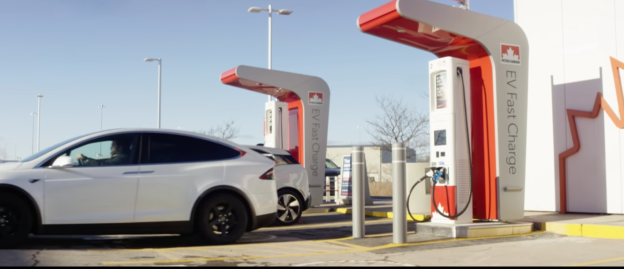
In order to construct a new economy that withstands climate change, the Government of Canada has announced that the country will comprehensively ban the sales of fossil fuel vehicles by 2035. It also proposed a stricter standard that requires all vehicles to be zero-emission by then, which means that HEVs will also be banned at that time.
Originally, Canada's plan was to have all fossil fuel vehicles banned by 2040, and only Quebec had wanted to implement the ban by 2035. As the entire government is now looking to accelerate the country’s transition towards zero carbon emissions, it has decided to move the entire timeline ahead to 2035.
The Government of Canada has a relatively extensive scope when it comes to the banning of fossil fuel vehicles, which include models like small passenger cars, light trucks, and commercial trucks. In the future, these vehicles can only be sold if they have zero carbon emissions. That is why HEVs that consume a low level of fuel must also withdraw from the Canadian market in 2035.
Canada had a total sale of approximately 1.6 million new vehicles in 2020; of these sold units, BEVs accounted for roughly 50K units. This figure indicates that at least 1.55 million units of fossil fuel vehicles would be eliminated in the Canadian market alone when the sales of EVs are elevated by 30 times within 15 years. A sizeable industrial change is bound to occur.
This policy is more than a PR campaign. The Government of Canada has taken the lead in investing in charging facilities, as well as providing subsidies for EV purchases, while the executive and legislative branches have also declared that the adjustments of various related regulations will be completed between 2025 and 2030 in order to achieve a comprehensive measure that welcomes the target of zero carbon emission for new vehicles in 2035.
The early banning of fossil fuel vehicles is only a part of the Canadian government’s sustainability policy. Its grand plan is to shift towards a net-zero emissions economy by 2050. Of course, the country will also be joining hands with the US on this path of transformation to create a new economy that will benefit both parties.
“Bold results come from a bold climate policy, and traffic transformation is only the first step,” commented Omar Alghabra, the Minister of Transport. Alghabra added that the government has also planned for a budget worth $8 Billion Canadian dollars that helps with the transformation and upgrade of relevant industries, in the hopes of creating a tenacious economy that is eco-friendlier and able to fight climate change.
Canada has become a pioneer in carbon reduction alongside the UK and California thanks to this policy. Its efforts are second only to Norway, which is aiming to be carbon free by 2025. The Canadian government has invested more than $1 billion Canadian dollars as of now, of which half is used on EV subsidies, and another half on the subsidy of charging facilities, including 16K units of charging stations and 10 units of hydrogen refill stations.
In addition, Ford has received an investment of nearly US$300 million from the Government of Canada to establish EV plants in the country that produces cheaper EVs for Canadian citizens.
(Cover photo source: Petro-Canada)







